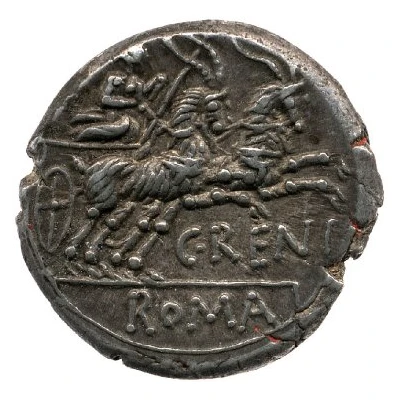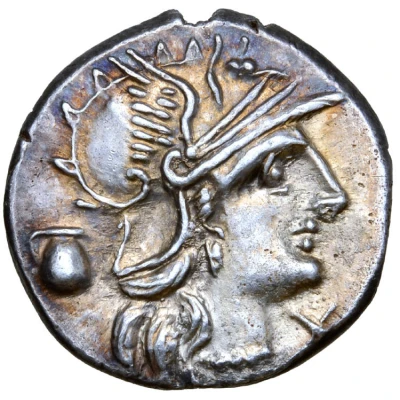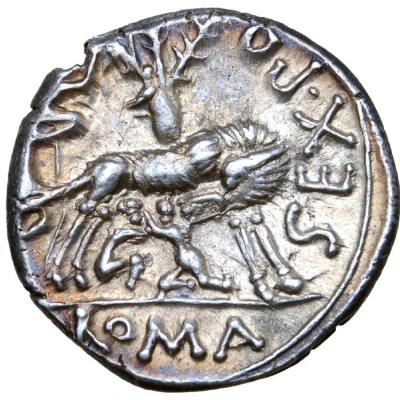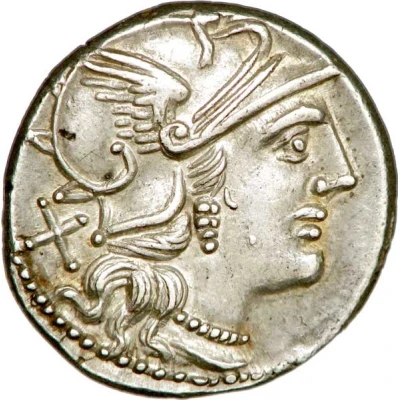
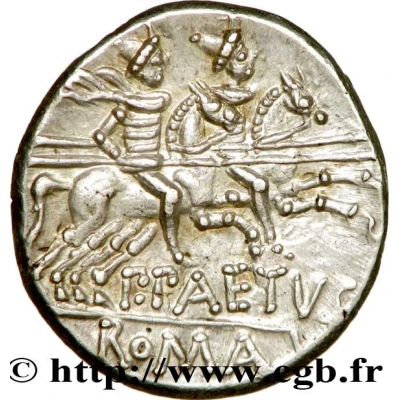

© CGB
Denarius Aelia: Publius Aelius Paetus; P•PAETVS ROMA 138 BC
138 BC year| Silver (.950) | 4.14 g | 23 mm |
| Issuer | Rome › Roman Republic (509 BC - 27 BC) |
|---|---|
| Period | Republic (509 BC - 27 BC) |
| Type | Standard circulation coin |
| Year | 138 BC |
| Value | Denarius (1) |
| Currency | Denarius of 10 Asses (221 – 141 BC) |
| Composition | Silver (.950) |
| Weight | 4.14 g |
| Diameter | 23 mm |
| Shape | Round (irregular) |
| Technique | Hammered |
| Orientation | Variable alignment ↺ |
| Demonetized | Yes |
| Updated | 2024-10-06 |
| Numista | N#66096 |
|---|---|
| Rarity index | 92% |
Reverse
The dioscuri, Castor and Pollux, galloping right; cuirassed with cloak floating behind, wearing caps with stars above, each holding a javelin.
Moneyer mark in field under the horses; ROMA in exergue.
Script: Latin
Lettering:
P•PAETUS
ROMA
Translation: Publius Aelius Paetus
Edge
Plain
Comment
The gens Aelia, sometimes Ailia, was a plebeian family at Rome, which flourished from the fifth century BC until the third century AD. Publius Aelius Paetus was the first to obtain consulship in 337 BC. Under the Empire the Aelian name became still more celebrated. It was the name of the emperor Hadrian, and consequently of the Antonines, which he adopted.The use of nominative mark is unusual for the denarius coinage; classic coinage would rather bear a mark like P•AL or AELI.
Marks ALLI ou C•AL known for the denarius coinage seem to refer to a different Roman family, the gens Allia.
Interesting fact
The Denarius coin was minted during the Roman Republic, a time when Rome was still a republic and not yet an empire. The coin features the image of Publius Aelius Paetus, who was a Roman consul in 138 BC. The coin's design also includes the abbreviation "P•PAETVS ROMA," which stands for "Publius Aelius Paetus, Roman consul." This coin is an example of how the Roman Republic used currency to promote its leaders and their achievements.

